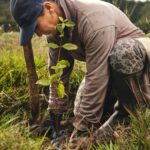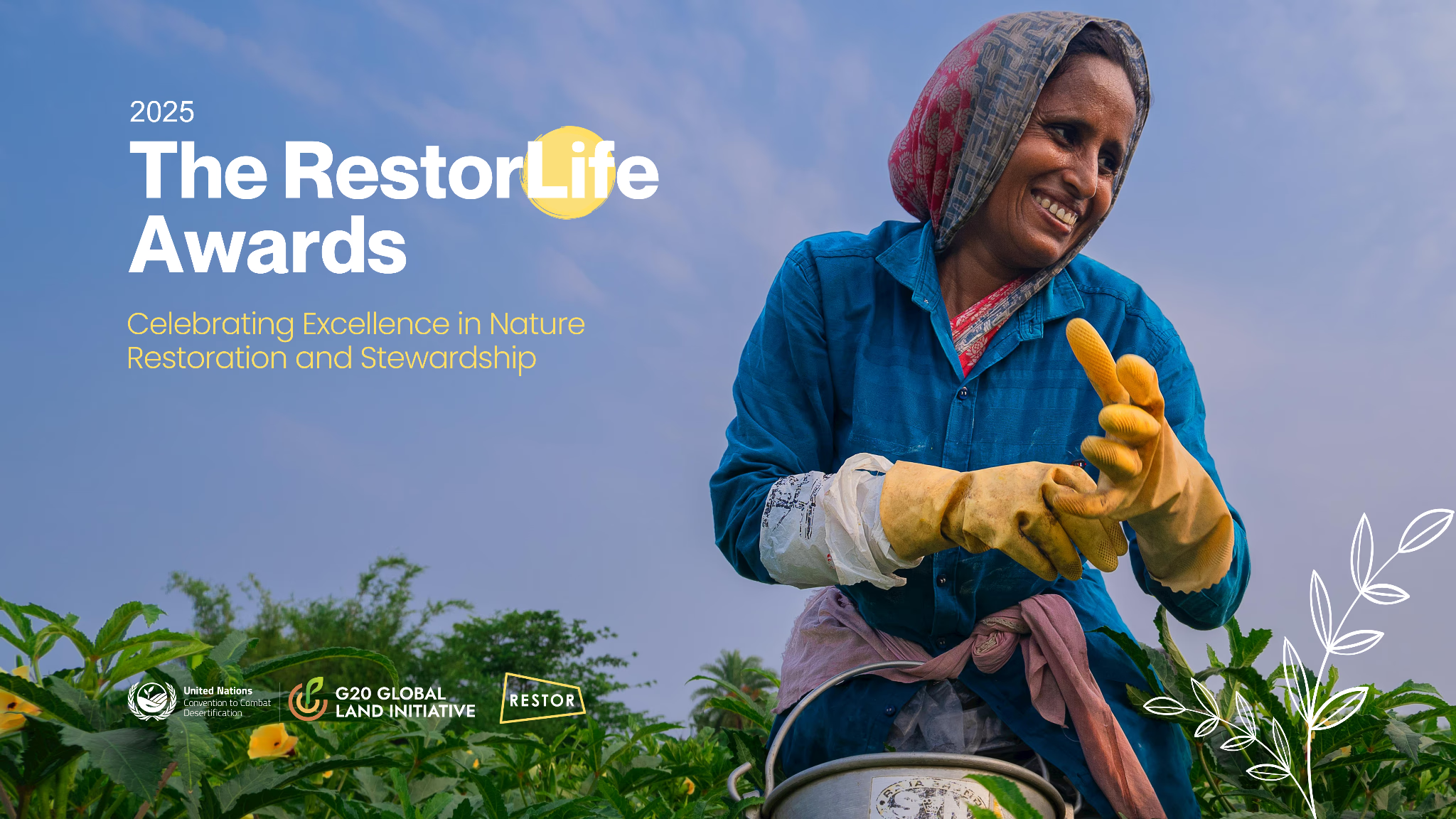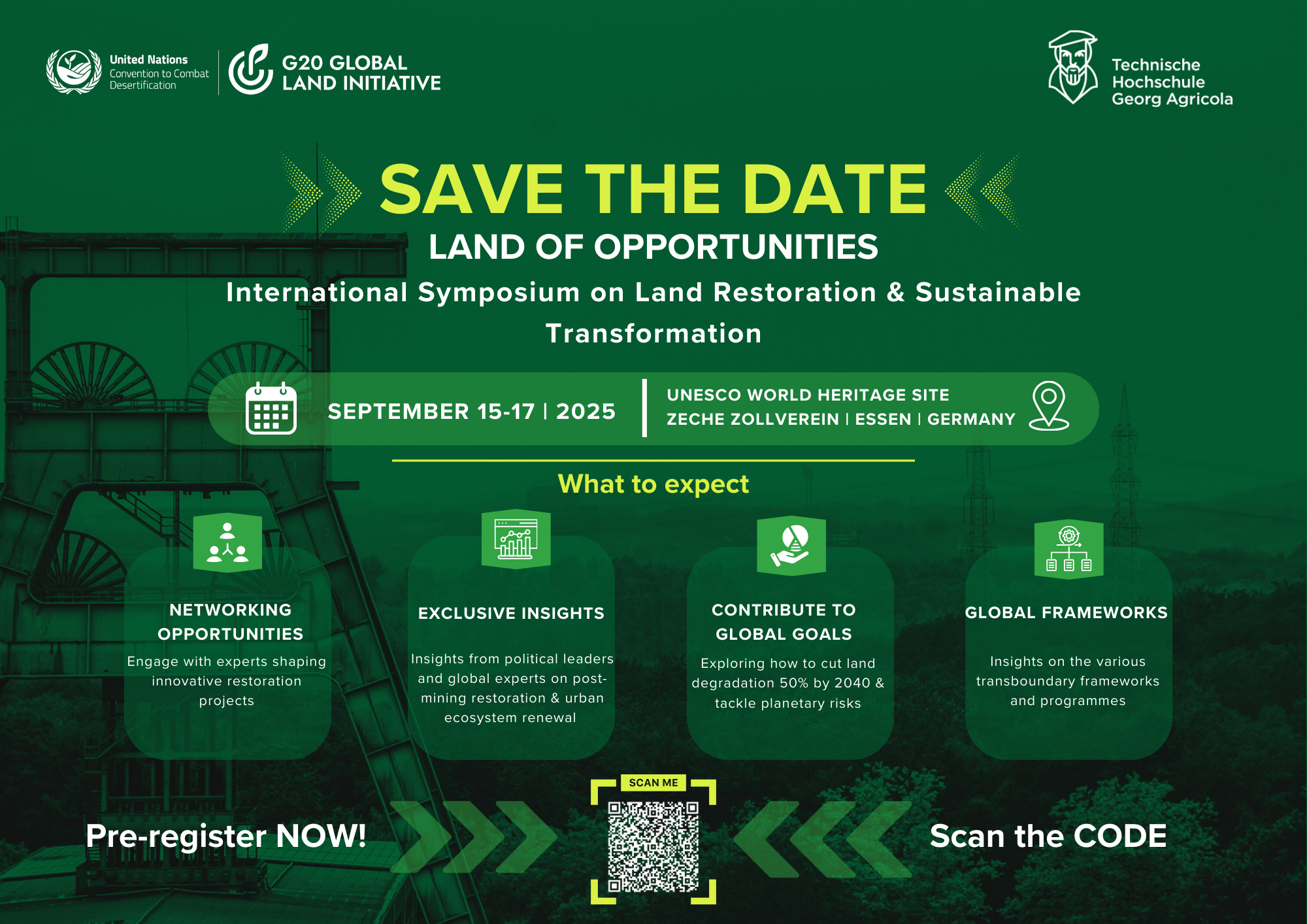Reviewing COP28 outcomes from a nature, land and ecosystems perspective

The unprecedented reference to the “transition away from fossil fuels” in COP28’s first Global Stocktake (GST) was definitely the big moment in the 28th session of the COP which just concluded on 12 December in Dubai, UAE.
But while this hard-won agreement grabbed headlines, equally important conversations – both in and outside of negotiation rooms – on the intrinsic connection between nature, ecosystems, and climate have also taken place at the conference which has attracted more than 97,000 people this year.
In addition to the historic agreement to “transition away from fossil fuels”, The first Global Stocktake (GST) of the Paris agreement, considered the main negotiated output from the COP, also highlighted the critical importance of nature and ecosystems for effective and sustainable climate action. After underlining “the urgent need to address, in a comprehensive and synergetic manner, the interlinked global crises of climate change and biodiversity loss in the broader context of achieving the Sustainable Development Goals”, the preamble of the GST goes on to also highlight the “the vital importance of protecting, conserving, restoring and sustainably using nature and ecosystems for effective and sustainable climate action”
The GST also goes ahead to remind us that our way of life depends on Nature and therefore we need a multi-pronged holistic approach if we are to protect nature and adapt to a changing climate. Paragraph 55 of the Global Stocktake “encourages the implementation of integrated, multi-sectoral solutions, such as land use management, sustainable agriculture, resilient food systems, nature-based solutions and ecosystem-based approaches”. As well as “protecting, conserving and restoring nature and ecosystems, including forests, mountains and other terrestrial and marine and coastal ecosystems, which may offer economic, social and environmental benefits such as improved resilience and well-being, and that adaptation can contribute to mitigating impacts and losses”.
The Global Stocktake also highlighted the need for alignment with the Kunming-Montreal Global Biodiversity Framework and emphasized “the importance of conserving, protecting and restoring nature and ecosystems towards achieving the Paris Agreement temperature goal, including through enhanced efforts towards halting and reversing deforestation and forest degradation by 2030, and other terrestrial and marine ecosystems acting as sinks and reservoirs of greenhouse gases and by conserving biodiversity, while ensuring social and environmental safeguards”.
In an effort towards halting forest degradation by 2030 in the context of the Sustainable Development Goals and poverty eradication, it also noted the need for “enhanced support and investment, including through financial resources, technology transfer and capacity-building”
There are both challenges and opportunities that will arise from a transition to a carbon neutral world. A green shift to a low carbon economy will require a cushion for communities and workers whose jobs depend on the fossil fuel industry, but opportunities also exist. Decarbonization will create millions of new jobs, and a land and nature restoration industry could be the next big industry to evolve in an upcoming green economy. Training in these new green skills is however needed, and this is where the G20 Global Land Initiative comes in.
The G20 Global Land Initiative emerges as a critical program in this era of economic green transformation. The initiatives objectives are centered around protecting land resources, reducing land degradation, and restoring degraded lands, which are crucial steps in the journey towards a carbon- neutral economy and a just and equal world. The initiative’s focus on capacity building and training is particularly vital. As the world grapples with the impacts of climate change, there is a growing need for a skilled workforce that can implement sustainable land management practices, engage in restoration activities, and innovate in green technologies. The G20 Global Land Initiative aims to equip individuals, including those transitioning from other industries, with the skills and knowledge necessary to thrive in this new green economy. This approach is crucial in mitigating the socio-economic impacts of the transition away from fossil fuels. It offers a pathway for workers to be part of the emerging green sectors, thus aligning economic development with environmental sustainability.
Outside of the negotiation rooms, discussions related to nature and ecosystems have also been taking place. The Joint Statement on Climate, Nature, and People, a joint statement between the UNFCCC COP28 Presidency, CBD COP15 Presidency, and chairs / co-chairs of key initiatives, alliances and coalitions, reflects a unified commitment to address the interconnected challenges of climate change, biodiversity loss, and land degradation. Brazil, in its role as the current chair of the G20 Global Land Initiative Steering Committee, is among the signatories, alongside five other G20 members: Canada, chair of the Nature Champions Network; the United Kingdom, chair of the Global Ocean Alliance and co-chair of the High Ambition Coalition for Nature and People; Germany, co-chair of both the NBSAP Accelerator Partnership and the ENACT Partnership; the United States, co-chair of the Forest and Climate Leaders’ Partnership; and France, co-chair of the High Ambition Coalition for Nature and People.
This commitment to the nature conversation was further exemplified by a dedicated pavilion in the blue zone at COP28 to Nature. The Nature Positive pavilion, a dedicated space uniting the nature-positive movement. The Pavilion brought together over 80 organizations, and included a Land & Drought Pavilion for the first time to date.
Several other significant nature and land related moments have also been seen outside of the negotiation rooms in COP28. Launched at COP27, the Forests and Climate Leaders’ Partnership (FCLP) announced four national support packages. These packages are designed to offer financial assistance and capacity-building resources to the Democratic Republic of Congo, Ghana, Papua New Guinea, and the Republic of Congo, to support them in effectively implementing their national strategies for the conservation and restoration of forests. The Mangrove Breakthrough, a goal announced last year in COP27 that aims for restoring 15 million hectares of mangroves globally by 2030, has been formally endorsed by 21 additional countries.
New financing for nature has also been a highlight. 2.5 billion USD was mobilized to protect and restore nature during COP28’s World Climate Action Summit on 2 Dec. Building on this momentum, an additional 186.6 million USD was announced on Nature, Land and Ocean Day. Collectively, these contributions amount to nearly 2.7 billion USD in new funding, marking a substantial investment in the future of our planet’s ecosystems.
On the private sector side, over 150 businesses and financial entities have pledged to establish climate and nature targets in line with the Science-Based Target Network and Science-Based Target International’s Forest, Land, and Agriculture frameworks. Participating businesses under these frameworks agree to enhance their investment in nature-based solutions and embark on a path to evaluate, manage, and to begin assessing, managing, and disclosing their nature-related impacts, dependencies, risks, and opportunities through the Taskforce on Nature-related Financial Disclosures (TNFD) framework.
Adding to these developments, Brazilian President Lula da Silva and the COP28 Presidency announced a two-year partnership to mobilize new resources and political support for nature on the road to COP30 in Belém.
As we look towards 2024, a pivotal year that will host the Conferences of the Parties (COPs) for all three Rio Conventions, the need for integrated strategies that simultaneously address climate change, biodiversity loss, and land degradation has never been more evident. The year 2024 presents a unique and crucial opportunity for the global community to further solidify a holistic approach to three crises of climate change, biodiversity loss, and land degradation. As these three crucial COPs converge, the world has the chance to build upon the foundations laid in Dubai, fostering synergy between the three environmental agendas and ensuring that our approach to the planet’s health is as interconnected as the ecosystems we strive to protect.








